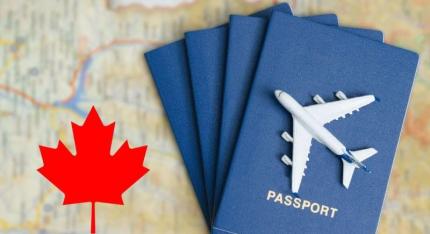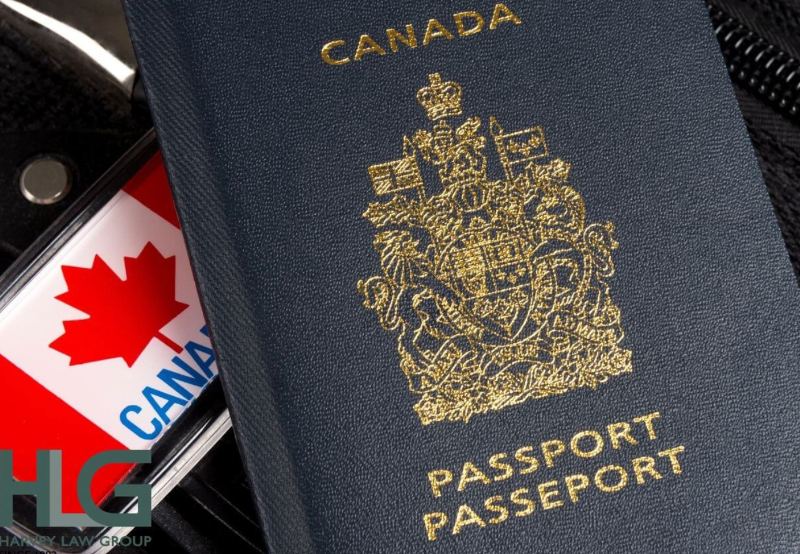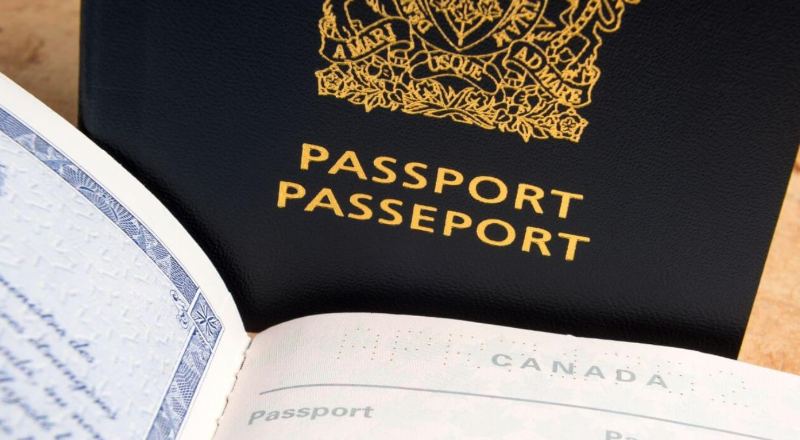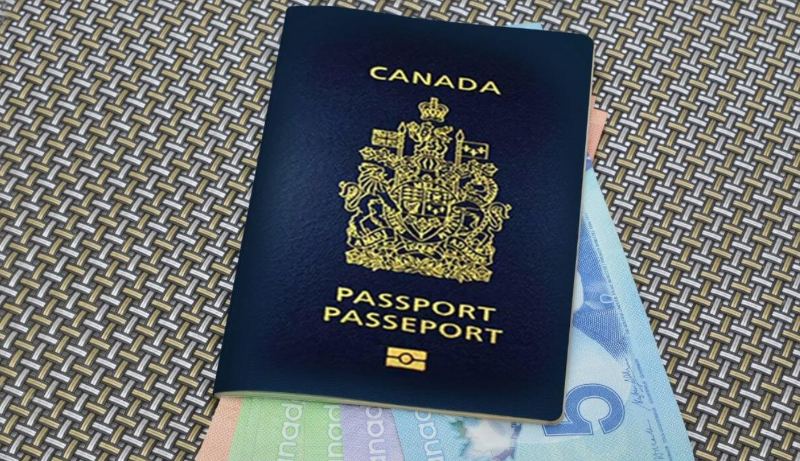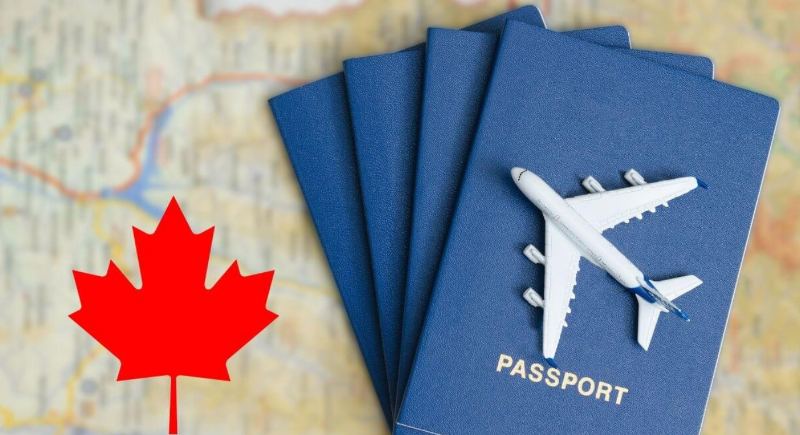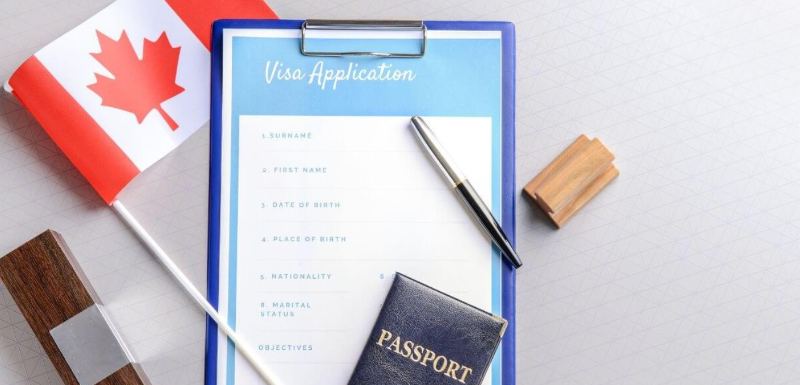Get free consultation
Fill out the form and we will contact you
What is Passport Canada? Often referred to as the "Canadian passport," it is an official document issued to Canadian citizens, granting them the right to enter and exit Canada, as well as travel internationally.
To obtain a Canadian passport, you must be a Canadian citizen and meet the conditions set by the Canadian Government. Let’s explore more about the requirements and process for obtaining a Canadian passport in the article below.
Passport Canada, also known as the Canadian passport, is an important document issued to Canadian citizens, allowing them to freely leave and enter Canada, as well as travel to other countries, provided they meet the visa requirements.
Passport Canada is issued to Canadian citizens
Whenever a Canadian citizen exits the country, their journey is recorded in detail in their passport. The Canadian passport not only serves as an international travel document but also ensures that citizens receive support and protection from the Canadian Consular Agency abroad.
According to a report by Henley & Partners, the Canadian passport ranks 8th in the global passport ranking, alongside Australia, Greece, Malta, and the Czech Republic. This ranking is based on the ability of citizens to enter numerous countries without needing additional visas.
The Canadian passport allows you to enter 185 countries without requiring further visas. Additionally, you can freely enter and exit Canada without any restrictions.
Canada does not require you to give up your current passport to hold a Canadian passport. The Canadian government allows you to retain more than one passport by holding dual citizenship.
Passport Canada allows you to enter 185 countries without a visa
When you have a Canadian passport, you become a Canadian citizen and enjoy all the rights and benefits like other citizens. This also means that you no longer need to frequently renew your residency status with the IRCC.
The validity of a Canadian passport varies depending on the age of the holder. For children under 16 years old, the passport is valid for 5 years. For individuals aged 16 and over, the passport can be valid for either 5 or 10 years. Since July 1, 2013, all Canadian citizens are issued biometric passports (e-passports) to enhance security and authentication.
According to statistics from 2017, over 22 million Canadian passports have been issued, and about 60% of Canadian citizens hold a passport.
However, it’s important to note that although a passport is the personal property of a citizen, all valid Canadian passports may still be required to be returned if requested by the Government.
The regular passport of Canada is issued to citizens for occasional travel purposes, vacations, or business trips. This passport has a navy blue cover and contains 36 pages, 29 of which are available for visa stamps and labels.
The validity of a regular passport depends on the age of the holder:
Individuals 16 years and older: Valid for 5 to 10 years.
Individuals under 16 years old: Valid for 5 years.
Regular Passport issued for travel purposes
A temporary passport is issued to Canadian citizens who are outside the country and require an urgent passport while their application for a regular passport is still being processed. A temporary passport contains 8 pages and is valid for 6 months to 1 year.
An emergency travel document, also known as an emergency travel passport, is a one-time document issued to Canadian citizens in emergency situations. This document allows citizens to return to Canada or present it to the nearest Canadian diplomatic mission.
The emergency travel document includes the personal information of the holder, including a photo, travel history, and the expiration date of the document.
Emergency Travel Document is a one-time-use document
The special passport, with a navy blue cover, is issued under a diplomatic order to individuals representing the Government of Canada on official business trips. Those eligible for this type of passport include:
Confidential commissioners
Members of Parliament
Provincial Cabinet members
Civil servants
Citizens nominated as official non-diplomatic representatives
Members of the Canadian Forces abroad
Since January 2009, the special passport has been issued as an ePassport under the Government of Canada's program.
The diplomatic passport, with a maroon cover, is issued under a diplomatic order and special passport to the following individuals:
Canadian diplomats
Senior Government officials (including lieutenant governors and commissioners of the territories)
Diplomatic couriers
Private citizens nominated as official diplomatic representatives
Family members of the above individuals, if residing with them (excluding diplomatic couriers)
Under the regulations of the diplomatic order and special passport, only the Governor General, the Prime Minister, and their family members are allowed to use the diplomatic passport for all travel purposes.
To apply for a Canadian passport, you must meet the following conditions:
You must be a Canadian citizen, which means you must:
Become a permanent resident of Canada.
Meet the Canadian Government's residency requirements.
File taxes if necessary.
Pass the Canadian citizenship test with the required score.
Meet language skill requirements.
Passport application form.
Birth certificate (original or notarized copy).
02 passport-sized photos (5x5 cm, white background).
National ID card (original or notarized copy).
Valid Canadian residency documents.
According to Henley’s ranking, Canada is ranked 9th among the countries with the most powerful passports in the world. This ranking is based on the number of countries that allow Canadian citizens to enter without a visa, as well as the number of countries that require a visa or an electronic travel authorization (eTA) upon arrival.
Canada Passport ranks 9th in the global passport ranking
Currently, the Canadian passport allows visa-free entry to a total of 138 countries, grants visa on arrival to 45 countries, and requires an eTA for 5 destinations.
The Canadian passport provides visa-free access to 188 countries, including popular destinations like Japan, the United Kingdom, the United Arab Emirates, the United States, and all European Union countries. This means that Canadian citizens have the ability to travel almost immediately to most countries around the world.
Above are the detailed insights from Second Citizenship regarding the Canadian passport, including its concept, validity, and application process. We hope this article has helped you better understand the Canadian passport and the associated procedures. For further information or detailed consultation on applying for a Canadian passport, please feel free to contact Second Citizenship for assistance.
Fill out the form and we will contact you
